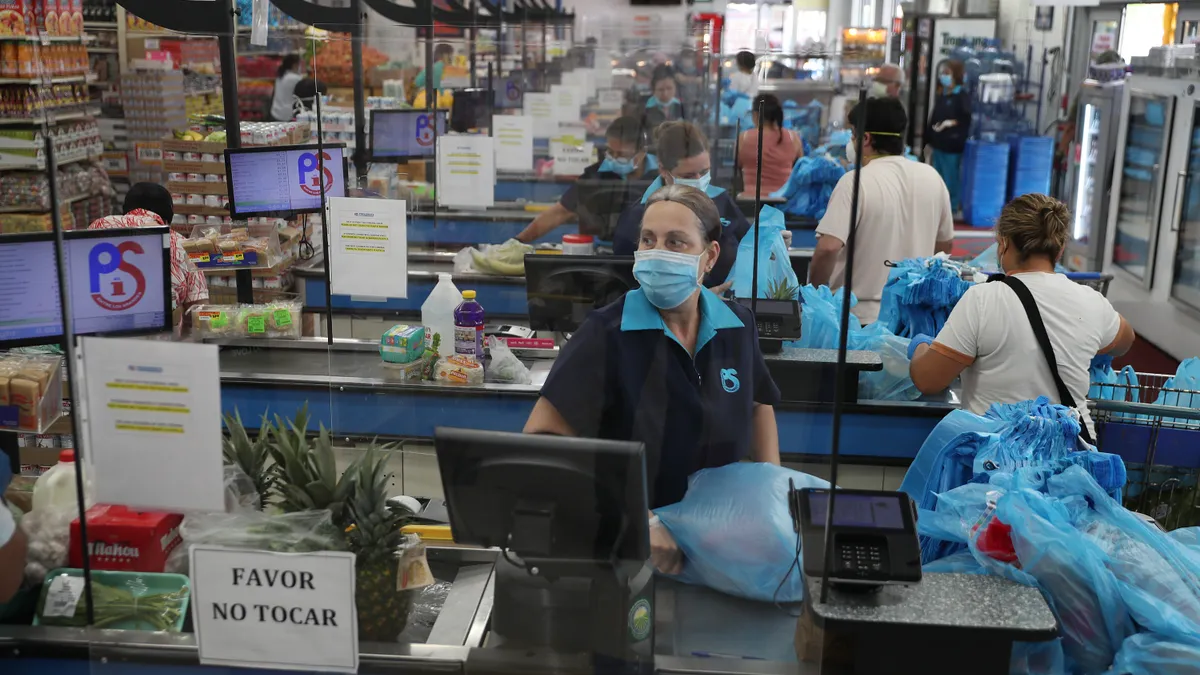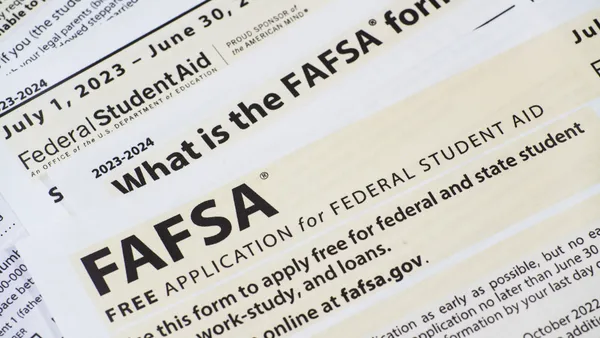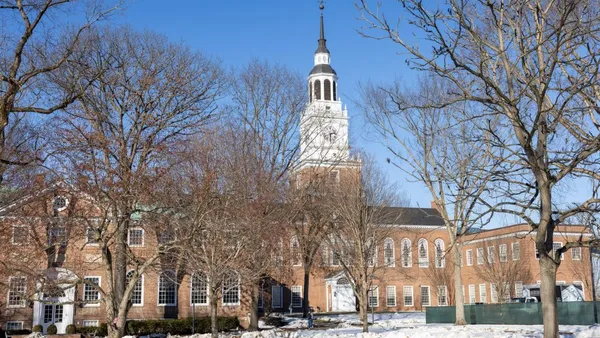Earl Buford is president of the Council for Adult and Experiential Learning.
As tough as this pandemic has been for just about everyone, essential workers have had to bear some of the greatest burdens. Healthcare workers, teachers, first responders, caregivers, food production workers, grocery store workers, hospitality staff, retail staff, line cooks, servers and more — all are folks whose work exposes them to risk.
But some of these jobs are not like the others. When the pandemic is eventually behind us, some of those occupations will once again be viewed favorably in terms of opportunity, benefits, and a living wage or better. But other essential workers will find themselves in jobs that don't pay well and never did, have minimal if any benefits and have a very poor outlook given that the pandemic only accelerated the global race to workplace automation. They deserve better, and one way we can "pay them back" is to help them access pathways to higher-paying work and careers.
Even before the pandemic, projects were underway to consider how to create new career pathways for workers in industries like retail and hospitality, where the signs all pointed to increased use of automation and a decreased need for labor. Creating "crosswalk" opportunities for workers allows them to parlay their experience and expertise in one industry or occupation into career success in adjacent ones. For example, as a grantee of the Walmart Foundation, which invested $100 million over five years to increase worker mobility, the Council for Adult and Experiential Learning supported efforts to help retail workers access work-relevant education, training and support for upskilling and career advancement, including transitions to nonretail employment.
Still other initiatives were mobilized during the pandemic to support the upskilling or reskilling of frontline or displaced workers. For example, the Markle Foundation's Rework America Alliance prepares unemployed and low-wage workers for jobs that are in industries most likely to need skilled workers as the economy recovers. The Federal Reserve Bank of Atlanta outlined a competency-mapping approach to helping hospitality workers access healthcare career pathways. Meanwhile, the state of Michigan launched Futures for Frontliners, a scholarship program that provides tuition-free community college to Michiganders without college degrees who worked in essential industries during the COVID shutdown.
But imagine what happens when a retail or hospitality worker enrolls at a community college or other local education and training provider. Invariably those workers are seen as "unskilled." Sure, many of these workers likely do not have much education beyond high school. Perhaps they have a few semesters of college but no degree. On paper, they are viewed as not having educational bona fides. Yet assuming that uncredentialed means unskilled is a big mistake.
Some of the best learning and skill development happens as part of daily life in the workplace, raising a family or serving in the military. In those environments, people learn by doing, by seeking out new information to do their jobs better, by participating in formal training, and by being mentored or guided by their supervisors and colleagues. A lot of what they are learning are what McKinsey & Co. has called "foundational skills that will help citizens thrive in the future of work."
Institutions may not have adapted their processes for awarding prior learning credit to the new working adult student populations.

Someone who has worked in a retail environment for a length of time is developing foundational interpersonal skills through customer service experiences. They also need cognitive skills like creativity and adaptability. Hospitality workers need to have well-honed interpersonal skills as they work with the public and also cognitive skills like critical thinking and clear communication.
Community colleges and other education and training providers can do much to validate and value the competencies that these supposedly "unskilled" workers have, in fact, already developed. Depending on the higher-paying occupation an essential worker is targeting, some of those existing competencies can count toward new credentials that lead to new and promising pathways. This strategy creates important crosswalks between essential frontline occupations and new jobs in growth industries — but it is likely that such crosswalks and valuing of frontline skills may not happen as often as it should in postsecondary education and training.
In an October report, CAEL and the Western Interstate Commission for Higher Education pointed out that the awarding of credit for workplace skills and competencies through credit for prior learning may, at some institutions, be limited to the kind of workplace competencies more common among supervisors and office professionals. In other words, institutions may not have adapted their processes for awarding prior learning credit to the new working adult student populations that are enrolling in ever-greater numbers — folks who might be looking to make a transition from industries like retail and hospitality.
Our frontline essential workers are largely low-income workers of color who have long been underserved by our educational institutions and who are overrepresented in the lowest-paid occupations in our labor markets. For the sake of equity — and support for the essential workers who have borne the biggest burden during this pandemic — we need to do better. We need to ease the financial challenge of paying for the training they need to access better jobs and careers, but we also need to value the important competencies they already have — competencies that should count toward new credentials and degrees.
In short, it's time that we look harder to see — and recognize — the valuable skills these individuals have to offer.












